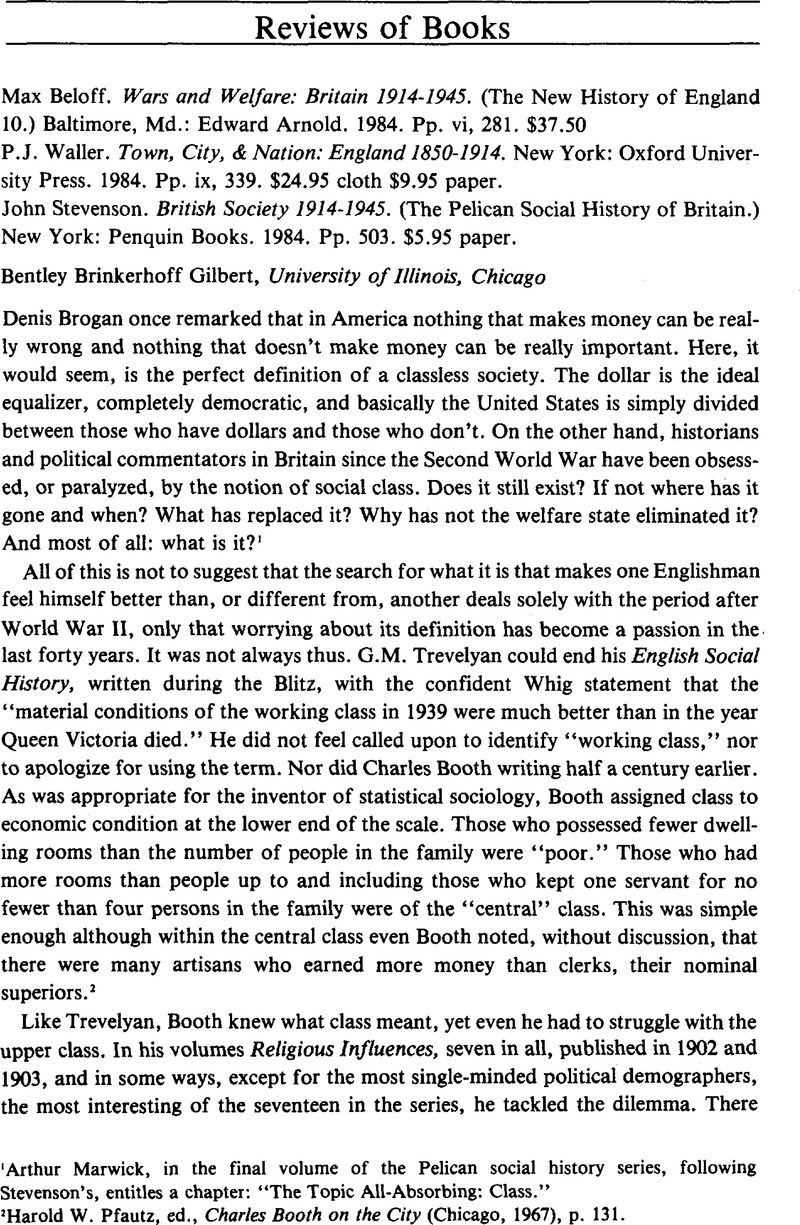No CrossRef data available.
Article contents
Max Beloff. Wars and Welfare: Britain 1914-1945. (The New History of England 10.) Baltimore, Md.: Edward Arnold. 1984. Pp. vi, 281. $37.50 - P. J. Waller. Town, City, & Nation: England 1850-1914. New York: Oxford University Press. 1984. Pp. ix, 339. $24.95 cloth $9.95 paper. - John Stevenson. British Society 1914-1945. (The Pelican Social History of Britain.) New York: Penquin Books. 1984. Pp. 503. $5.95 paper.
Published online by Cambridge University Press: 11 July 2014
Abstract

- Type
- Reviews of Books
- Information
- Copyright
- Copyright © North American Conference on British Studies 1985
References
1 Arthur Marwick, in the final volume of the Pelican social history series, following Stevenson's, entitles a chapter: “The Topic All-Absorbing: Class.”
2 Pfautz, Harold W., ed., Charles Booth on the City (Chicago, 1967), p. 131.Google Scholar
3 Religious Influences, 7 vols. (London, 1903), 7: 396–399.Google Scholar
4 Ibid.
5 Stark, Thomas, The Distribution of Personal Income in the United Kingdom, 1949-1963 (Cambridge, 1972), p. 96.Google Scholar
6 In an admirable article entitled “Welfare: Progress and Stagnation,” in Gwyn, William B. and Rose, Richard, eds., Britain, Progress and Decline (London, 1980), pp. 39–56CrossRefGoogle Scholar, Hugh Heclo has noted the singular stultifying effect of the welfare structure. In spite of a massive organization designed to transfer wealth, non apparently has been transferred.
7 Lord Salisbury loved the city because he could walk the streets without being importuned by detestable Old Etonians.
8 Perhaps it would be better to say that it behaved like one. Probably the corner was turned when Churchill agreed that Eisenhower, not Allenbrooke, would command the Allied Expeditionary Force. It may be suspected that Churchill understood that Britain's time had come.




